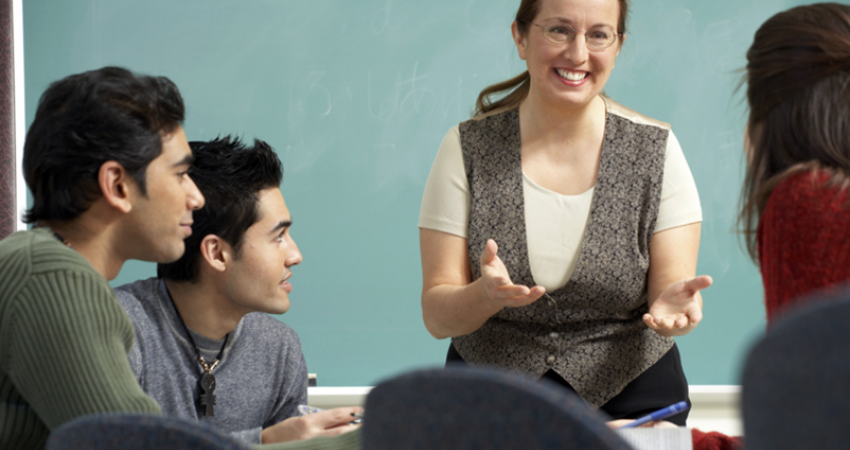
By Heather King - July 2014
PAPER CITATION
Logan, M. R., & Skamp, K. R. (2013). The impact of teachers and their science teaching on students’ ‘science interest’: A four-year study. International Journal of Science Education, 35(17), 2879–2904. doi:10.1080/09500693.2012.667167
This Australian study reports on students’ science interest across their first four years of secondary school. The findings will be relevant to all concerned about the decline in the numbers of students choosing to study science at higher levels and pursue science-related careers. The study employed the Science Interest (SI) survey (Pell & Jarvis, 2001) but also asked students about the attractiveness of lesson content and about the manner of science teaching.
Research Design
Fourteen students in one school were followed across years 7 – 10. The annual SI survey measured students’ feelings toward science experiments, asked students to rate their feelings about a school science lesson, and asked students to rate their feelings about science in the social context. An example of a social-context question would be ranking the statement “Science has made us better and safer medicines.” Additional data included short interviews, classroom observations, student work samples, and excerpts from the researcher’s diary.
Following descriptive coding of the data, narratives of each student’s science journey were developed, providing an interpretation of how students were seeing their science worlds at school and in society. Next, a comparison of the qualitative themes with the quantitative survey data allowed researchers to infer the reasons for students’ level of interest in science.
Research Findings
The paper’s findings present detailed changes in the students’ SI scales over the years and discuss how the scores correspond to students’ views on favorite subjects and potential subject choices. The authors suggest that variations in science interest over time may indicate changes in situational interest rather than deeper personal interest. The changes may be partially dependent on changing environmental stimuli across a curriculum.
A more significant finding relates to the clear importance of a teacher’s personality and practice as a factor in student science interest, with some teachers negatively affecting SI scores and some having a positive effect. Clearly there is an alignment between kinds of science learning experiences and science interest. This finding led to an in-depth consideration of individual teachers’ pedagogies and their effect on students. The authors concluded that:
- A good teacher-student relationship based on fun, humour (but not sarcasm), and rapport appears to enhance interest.
- Students become disinterested by extensive note-taking but enjoy practical science.
- Clear instructions and explanations support interest; repetition or rushing through content hinders interest development.
- Interest is fostered by adequate levels of challenge.
- The topic needs to be relevant to the students’ lives in order to be interesting; relevance may be achieved by bringing school science and out-of-school science together.
This paper suggests that individual students’ science interest can be volatile, especially with regard to their enthusiasm for school science. Teachers’ pedagogical practices appear to have a strong influence on this volatility. If teachers are able to help students develop a situational interest, a longer-lasting, deeper personal interest may follow.
Theoretical Basis
Situational interest is triggered by something in the environment: It tends to be affective and may be short-lived. Personal interest develops over time and affects a person’s knowledge and values (Hidi, 1990). Recent studies have examined the ways in which interest specifically in science is affected by an individual’s identity, which itself may be affected by issues associated with adolescence such as peer pressure or idealised self-concepts (Krapp & Prenzel, 2011).
Implications for Practice
Although this study focuses on the significance of teacher behaviour in affecting student interest, the findings highlight the vital importance of supporting situational interest as a precursor to deep personal interest. Staff working in informal science education have long celebrated and promoted the affective value of their exhibitions and programmes. The challenge now is how best to capitalise on situational interest to build personal interest, which may then grow and be applied across contexts. Building lasting interest may be difficult when learner involvement in a programme is fleeting. It is a more attainable goal for longer-duration afterschool programmes. Indeed, the descriptions of effective teacher practice presented in this paper may be highly relevant in afterschool settings.
Understanding of the psychological theories of interest development and their implications can be useful for programme designers who are keen to support young people in developing situational interest, which can lead to personal interest, which can in turn lead to rich cognitive engagement.
References
Hidi, S. (1990). Interest and its contribution as a mental resource for learning. Review of Educational Research, 60(4), 549–571.
Krapp, A., & Prenzel, M. (2011). Research on interest in science: Theories, methods and findings. International Journal of Science Education, 33(1), 27–50.
Pell, R., & Jarvis, T. (2001). Developing attitude to science scales for use with children ages from five to eleven years. International Journal of Science Education, 23(8), 847–862.




